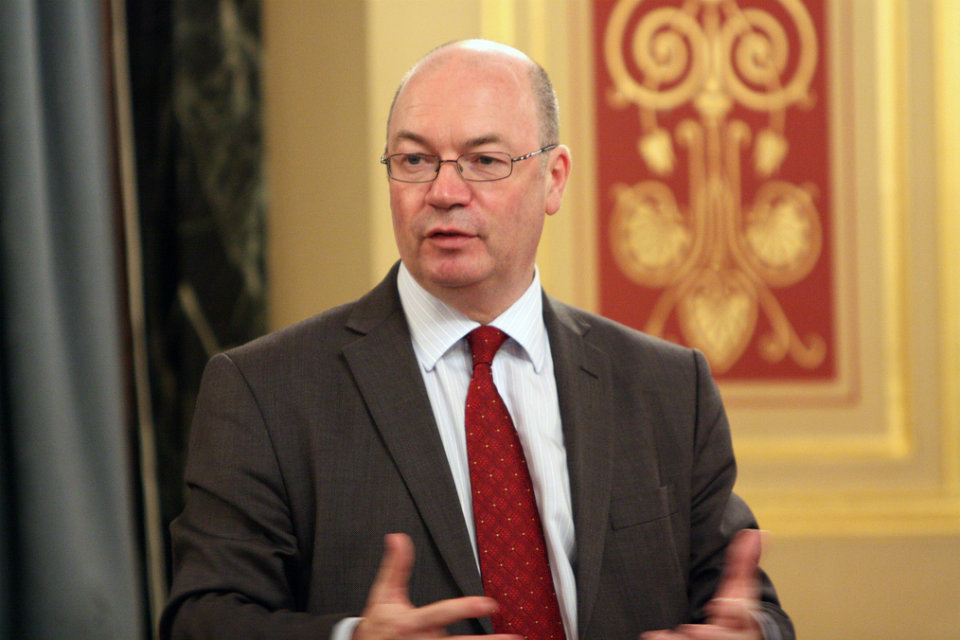International community must work together to support Yemen
Intervention by UK Minister Alistair Burt to the UN Security Council meeting on the Middle East (Yemen)

Thank you Mr President. I would begin by thanking the Australian Foreign Minister for convening this important meeting as the National Dialogue in Yemen draws to a close. The United Kingdom also thanks its friends, the Special Adviser, Secretary-General Dr Al-Ziyani, and Foreign Minister Al-Qirbi for their assessments and assure them that in response to all their own remarkable efforts the United Kingdom and the international community remains deeply committed to the success of this transition.
Mr President, I was able to see the progress that is being made personally when I visited Sana’a once again earlier in this month. My discussions with President Hadi reaffirmed the importance of the work of the United Nations and supporters of the GCC Initiative to support Yemeni reconciliation through an inclusive, peaceful, transparent, constructive, and reconciliatory dialogue. I was impressed by President Hadi’s determination to improve the security and economic situation in Yemen and His Excellency deserves all our support. I was similarly impressed by the energy and determination demonstrated by other parties to the National Dialogue with whom I and the United Kingdom have also been in contact.
So we are pleased to hear that a conclusion to the National Dialogue is close, with nearly all the nine Working Groups ready to submit their reports. We would urge all of the participants to work together constructively to find solutions to the remaining questions. And If I may pick up on one particular point made by the Special Advisor it is to say that the National Dialogue was never intended to provide every conceivable answer to every available question. An agreement on a set of principles for any outstanding issues would represent reasonable progress if a fully negotiated settlement is not is achievable at this stage. A framework for the future would indeed be success.
The National Dialogue, of course, is just one piece in a much bigger picture of political, economic and security reform. On the economy, the Friends of Yemen Ministerial meeting on Wednesday underlined the important steps that the Government of Yemen has taken on establishing the Mutual Accountability Framework policy commitments and pushing through energy sector reform.
But delivery of these commitments and further dispersal of donor pledges are crucial if the political solutions are to be sustainable and the lives of the people of Yemen improved. I look forward to seeing progress on development of the Supreme National Authority for Combating Corruption, on fuel subsidy reform, implementation of proposals to remove ghost workers and on efforts to tackle youth unemployment. Accelerating progress on aid disbursements must be a priority for all international partners.
The humanitarian situation in Yemen remains critical. Her Excellency, Baroness Amos’s recent visit highlighted again the acute nature of the situation, with more than 10 million people – almost half the country’s population – suffering from food insecurity. Child malnutrition rates are among the highest in the world. Substantial humanitarian need will persist in Yemen for some years to come.
The United Kingdom remains a committed donor of humanitarian aid and we have increased our contribution to £70million over the next two years. It is essential that the United Nations delivers “as one” in country. Humanitarian needs must not be neglected and the economic challenges must be addressed; otherwise, prospects for a successful political transition process could be severely undermined.
Looking ahead to 2014, the international community must continue to work together to support the Government of Yemen in the transitional period and beyond. The Security Council’s focus and continued monitoring will be important. Spoilers cannot be allowed to derail the transition. Embedding National Dialogue decisions and supporting implementation will be crucial.
The continued attention of the Secretary-General, his senior team, the GCC, and the diplomatic community in Sana’a will be vital to success as indeed, will the consistent support of all of us here.
So finally Mr President, in the midst of a difficult region, the Security Council, as evident from a number of comments made this afternoon, does not minimise the achievement to date of the leaders and people of Yemen in reaching the position they have. Difficulties have already been overcome though a tough further period remains.
In remaining committed, we honour what has been achieved. We demonstrate our support for the fresh opportunities for men, women, youth and children in Yemen and we manifest our hope that Yemen will produce its own pathway for the future along which we will be sure to walk with them.
Thank you very much.